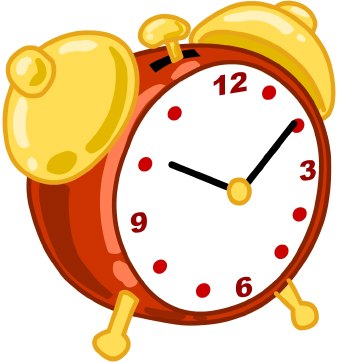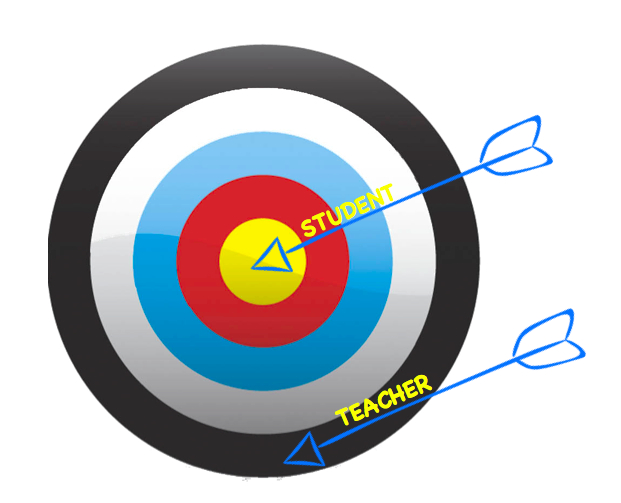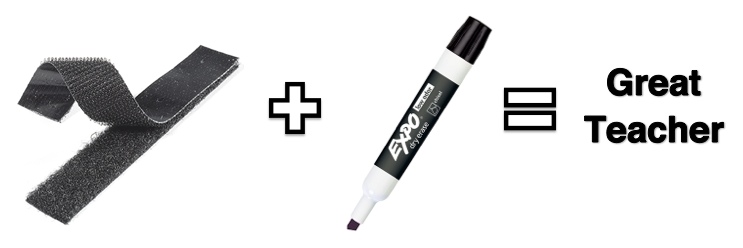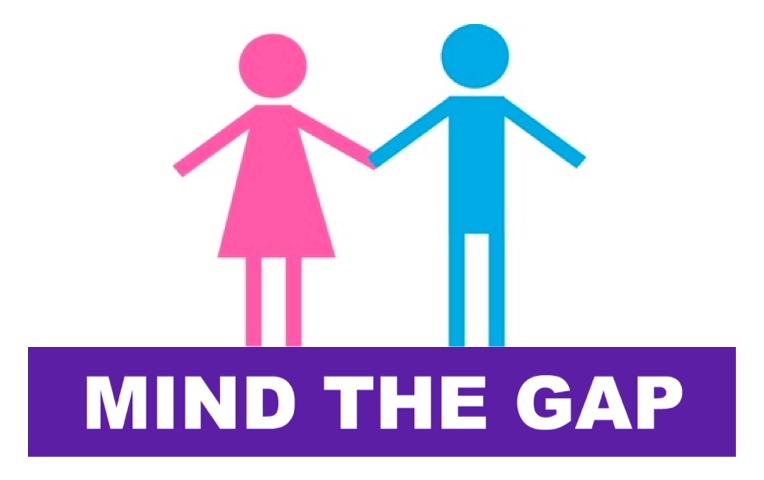And you know what? I actually want to do most of those things! But my goodness, revolutionizing how we teach and how students learn requires planning and strategy before action. Planning and strategizing (and the research required to even get to that point) takes time, and a lot of it. Uninterrupted time, not 30 minutes here, or 40 minutes there while periodically students (or colleagues!) poke their head in the door with questions.
I haven't arrived on time any where in over three weeks. I'm being pulled in so many different directions, three preps, two APs, science fair projects, the responsibilities of a department head, freshmen problems, college recommendations, teenage angst, and then all the little tasks that pop up every day. So I'm late too meetings, to assemblies, to my own classes because I'm running from one fire to another. Being late makes me feel sick to my stomach, I was brought up to be on time. The anxiety of being late made me realize that, while I blamed myself for being late (and I won't relinquish all responsibility), I'm mostly late because the current education system's infrastructure is not designed to handle the requirements of its users. Schools are century old bridges designed for horse traffic, but are now bearing the weight of multiple semi-trailers - at some point it's going to break. It's time to really open a dialogue about changing how teachers' days are structured in the United States. Other nations have figured out the 50-50 model, for every hour a teacher is in the classroom teaching, they have an hour to plan, prepare, mentor and provide feedback to students. This time should be sacred because the success of what we do rests on the foundation of our work. I can take the time to come up with an amazing inquiry-based project or I can provide students with critical feedback to support their academic development, but I don't really have the time to do both under our current system. A recent article about opening up AP courses to all levels of students made me think, no way, that would be so unfair to underprepared/under-motivated students because I wouldn't have the time to customize their learning to make up for their deficits. It's not that I couldn't help more students succeed in advanced courses, it's that I don't have the time to do it. We keep talking about closing the gap, but I don't think we have the guts to do what it takes. No one would expect an attorney to enter the courtroom for a murder trial without weeks, even months of preparation, yet we ask teachers to walk into classrooms every day with mere minutes of preparation time. And I'm pretty sure lives are on the line in both cases. I'd love to explore this topic in more depth. but of course, I'm late for a meeting! Feel free to comment with your thoughts.
2 Comments
I am not anti-direct instruction, my mother always told me, “everything in moderation” and I apply this to my teaching strategies as well. Afterall, DI can be a highly effective means of delivering information such as instructions or foundational content quickly in order to buy time for students to do the work. And for me, that’s the role of DI, it enables me to get to where my students do (emphasis on the “do”) the really cool stuff. The really cool stuff by definition is student-centered, almost always relies on the use of technology, and would be pretty challenging to accomplish without a little metacognition happening at the same time. I’m pretty sure that’s a triple threat, and if I get excited about twofers, we can assume a win-win-win puts me in the seventh ring of teacher ectasy.
So here are three tricks for integrating technology to put students the center of their learning: 1. Making connections to course content: I’m old school, so Bloom’s Taxonomy lives in my brain and I can’t help but want my student to reach those top levels including synthesis, evaluation and analysis. I think the process of making a connection between two concepts is an excellent example of higher order thinking. Let’s say I previously taught about virus and bacterial structure and now several months later I’m in the ecology unit. I ask my students to hunt down a podcast that connects those two concepts. The first time I do this, I identify the concepts I want linked in a single podcast, after students build experience I let them identify the concepts linked in their selected podcast. See what I did there? Scaffolding metacognition. Students get to explore course topics that peak their interest, practice using research and internet search skills (I explicitly teach these skills early in the year), and get to communicate their findings with peers. We curate the podcast links with a student generated summary of the rationale for selection in a google doc allowing me to assess their evaluation and analysis while permitting other students to access links that interest them. Some of these podcasts become part of my permanent link collection because they are so on point! 2. Exit slips the new-fashioned way: Are you still using slips of paper or post-it notes for exit slips? Get on the google slide train instead. I start a new google presentation with a question or instruction (give a brief summary of viral structure, identify two things you learned today, ask me a question about something you didn’t understand today, how do viruses infect host cells, why do viruses infect host cells, etc.) and then share the document at the end of class. Students add a slide with their name and answer in just 2-3 minutes. I have a single document to review and students can see how other students are thinking – there’s that metacognition thing again. You could make this even more student-centered by having your students create the exit question, maybe taking turns, you might learn a lot about their understanding! 3. Put the spoon down and stop feeding information: I get so excited when my students ask questions in class that without even thinking I launch into a tangent to answer it. Afterall, whatever topic we’re working on is so engaging my students are asking questions, oh my gosh, jump and down, I don’t want to disappoint them! The hardest thing I have been trying to teach myself, is to stop answering student questions and instead make them find the answer, you know using that crazy new-fangled thing called a search engine and then evaluating the quality of the source? So I started pausing class to have students do just that, big mistake, we lost precious minutes of class and some students would lose interest or get distracted while waiting, or frankly, just weren’t that interested in the question. Now when a student asks a question that isn’t directly tied to the lesson or for whatever reason I cannot take the time in that moment, we create a google doc. You can offer an extra homework grade to students who answer and document the question(s), or you can use them as bonus questions on a quiz/test, or maybe they inspire a research project for that unit. I hope these ideas help and/or inspire you to get students thinking and doing in your classroom because if they are doing than chances are good they are thinking! It’s mid-April which means AP exams start in two weeks and the end of the school year is in sight. Perhaps I should be jumping for joy (ok a piece of me is) but mostly I’m already reflecting on what worked this year and what I need to do differently next year. I go through this process every year, identifying a million things I want to change up, but I forget them all by the time August rolls around again. So this year, I’m going to blog about my ideas to help hold myself accountable for making the changes come fall.
In no particular order, here are a few things I want to try or do better next year: 1. Training students to clean up after labs – time always seems to run out and I hear myself saying, “Don’t worry kids, get to your next class, I got this mess!” No I don’t, I don’t “got this mess,” I have no time to spare during the day, there are more important things for me to spend my time on such as grading lab reports (see #3). 2. Create an attendance board for my homeroom. I imagine this as laminated cards with student names that they flip over when they come in. Any names still face up are absent. I don’t know, I might be dreaming about this working, but I always seem to have my hands in an aquarium and/or helping a student with homework during homeroom, next thing I know that bell rings and I’m like uh-oh. 3. Help students improve their writing by providing better feedback on lab reports and free response questions. I’m interested in exploring the idea of video or audio feedback, but not sure of how to best and most efficiently do this – any ideas? 4. Keep up with absent students and their make-up work. I really don’t have too many potential solutions here, but I’ve got to get a handle on enforcing the school policy on late work. It’s just so challenging to figure out which students missed what when and how many days late it is?! 5. Using googledocs for bell work and exit slips. I’ve been trying it out this year, setting up a google slides presentation with a question on the first slide, every student then creates a slide with their name as the title and answers the question in the content area. I need to set up shared folders by class to streamline the process. Awesomely fast way to formatively assess where students are at and I like that students can see each other’s work/thoughts. 6. I have amazing students but I want to develop their self-discipline (read they chit chat too much and focus too little) and their risk-taking (read they are afraid to give wrong answers). I need some help with this one, maybe using Noise Down and Classdojo apps? But what about the risk-taking? 7. Finishing my AP curriculum prior to the day before the AP exam. This will never happen, but it gives me some giggles just thinking about it. 8. Using a file folder system to pass back student work. I think this might be worth the time/resource investment to set up, it might also help with my make-up work challenge. 9. I love embedding technology throughout my instruction and learning, and yet I never create email lists for my classes. It’s a little thing, but I’m doing it next year. 10. Most importantly, I want to velcro my expo markers to my whiteboards. I don’t know why, but I saw it on Pinterest and what if velcroed markers are the stamp of great teachers? I’m on it. I’m sure I’ll add to this list over the next few months. What do you want to do differently next year?
After almost a decade of teaching I elected to spend three years studying educational leadership at the doctoral level through the Carnegie Project. I had inspiring professors (shout out to Dr. Valerie Storey and Dr. William Leary among others) who pushed me out of my learning comfort zone and enabled me to stretch my understanding of leadership. Where once I understood leadership within a managerial context, they expanded my understanding and developed my desire to someday become a transformational leader in education.
Through the program I developed a idealized vision of educational leadership based on a foundation of truth, ethics, equity, social justice, and morality. I wanted to make a difference in the world, impact young adults, support teachers, build efficacy within the educational system, give every student and every teacher the opportunity to succeed. A good leader is transparent, honest, ethical, and moral. Great leaders are all of these things and serve as mentors to develop future leaders. Great leaders do not play favorites or hold biases based on race, ethnicity, or gender. They should serve and nurture their followers so that the institution becomes stronger by developing and building talent within. How does a leader serve and nurture their organization? By emphasizing transparency over opaqueness, listening and given credence to stakeholders, enabling individuals to reach for leadership, providing honest and constructive feedback, believing in the ability and capability of individuals within the organization and by giving and offering trust. Leaders are so crucial to the success and achievement of an educational institution, they set the rudder for a ship that has many sailors and often finds itself in rough seas, without someone to identify the right direction, it will founder as sailors lose faith and jump. Teachers may leave or worse, they may stay but be absent in spirit - neither will serve the institution well. While my own leadership role is small, I strive to offer transparency by being honest and upfront with my faculty. I am determined to be clear in my expectations and valiant in my support to help teachers meet those expectations. I want to inspire others to consider taking on leadership as a mechanism to provide students with an outstanding educational experience while satisfying their own professional growth needs. I hope to inspire other teachers to take on the most difficult of tasks - reaching every student in their classroom and mostly I pray to never be the reason a teacher gives up on teaching. So share with me - what characteristics do you look for in a leader? Girls are not good at math and science. Boys cannot read. The New York Times appeared to be surprised by these results on the most recent PISA administration, but as a teacher I can't say I was surprised. I was taken aback by Eduardo Porter's claim that we should be most concerned about boys and their poor reading skills. He seems concerned that boys are prone to violence and therefore it is more important that we educate them in order to protect "social cohesion and economic prosperity." Granted I'm thoroughly biased, but I would think girls and women play a crucial role in establishing social cohesion and economic prosperity as well.
Now prepare yourselves because I am about to propose something revolutionary: we should teach boys to read AND improve girls' performance in math and science. We might even be able to do it all at the same time, but I'll come back to that later. The idea that we should focus education on either boys or girls is thoroughly unacceptable. Boys and girls are different, but the differences within groups might be even greater. Yes we can make generalizations about girls and boys and what their likes and dislikes might be, but we're still going to be wrong for a lot of children. For example, I can still remember that on every standardized test I took in secondary school there were reading passages on sports, they were so boring to me, it took a lot of effort to force myself to read those stories and answer the questions. On the other hand, my friend Susie*, who was an amazing softball and soccer player loved those passages, she could relate to them (and she had prior knowledge of what an RBI was). But I bet, whoever included those passages was trying to include topics that would engage boys, and maybe some boys did enjoy reading about baseball but maybe other boys would've preferred to read about bugs or making brownies. The point I'm trying to make here is this: it is dangerous territory when we start trying to cater to students based on gender, instead I suggest we cater to the individual and not any group, gender or otherwise. Give kids more choice in what they read, so that a good proportion of the time, kids are engaged with what they are reading. Even my book club cannot agree to read one book, so we suggest a book, then every one goes and reads whatever book they actually want and we talk about all of our books, which typically leads us to read more books based on what others reported. Why can't this model work for schools in some form? Perhaps with more structure, say, here are four books to choose from, students that choose the same book will form a group for the duration, but maybe in the next round of book choices the groups will change again (and I won't even get into the benefits of mixed grouping). So girls and math. What are we doing about that? As a teacher, I don't feel like we're doing a whole lot, I have not witnessed any significant changes in how we teach math to make it more accessible or engaging to girls specifically (if your school or district has please comment below because I want to hear more!). What I do know is that we've been teaching math in isolation for over one hundred years, when are we going to start integrating math into the other disciplines such as science and social sciences? Get math out of theory and into practice so girls can gain confidence through application. When are we going to have math experts (people with degrees in mathematics and/or who feel comfortable and knowledgeable with math) teaching our elementary students? To be sure there are some out there and I'm lucky enough to have more than one at my school, but I have heard way too many elementary teachers express concern about their own math ability or confidence in teaching math. Students are very perceptive and even subtle teacher attitudes are passed on to students. Let's teach boys to be better readers and girls to master math and science. Here's how: 1. Foster a love of reading by giving students more choice in what they read. This can be done across disciplines not just in Reading or English class. I teach an environmental science course and require students to report on current issues connected to the course content, but I let them choose the topic and article, all they have to do for me is justify its relevance and explain its value to the discipline. 2. Focus more on individual motivations than on group motivations. Bring students together into working groups based on a topic of interest, not on external factors such as gender. 3. Start teaching math through science and social sciences. All students benefit when they can see how the math they learned in math class is used in the "real world." It also gives them more practice to develop mastery which may be essential for girls. 4. Support the development of true math experts at the elementary levels. Girls need to know and see that their teachers, who are mostly female, are confident in their own math ability. 5. Rescind the negative attitudes, all stakeholders need to eliminate these. We have to stop saying it's ok for boys not to be good readers, or it's okay for girls to not be good at math and science. Let's start saying, all boys can read just like all girls can do math and science. Lastly, I mentioned above that we might be able to do a lot of this all at the same time. Again, I must reiterate my bias, not as a woman this time, but as a scientist. Science is the key discipline here - science integrates math, english, and history into one giant ball of wax. As educators, as a nation, we must rethink how we teach science and what we think is most important to teach within science. I would argue, it's not so important that students can regurgitate the phases of mitosis or memorize the periodic table, but rather can they understand the historical value of innovation, invention and scientific thinking? Can they effectively communicate ideas both orally and in writing? Are they able to interpret statistics and evaluate evidence to come to a reasonable conclusion? Can they identify bias in media? Are they able to envision multiple solutions to a single problem? If we truly reinvented how we teach science boys just might become better readers and girls might become scientists and mathematicians. *Name changed to protect the innocent and/or guilty.
I was a good kid in school, I didn't cause trouble and I earned high marks. My trick was that I had a very good memory and I loved to read. Teachers praised me, they told me how smart I was all through elementary and middle school. Then came high school, and the material became more and more challenging. I still did well, but I had a sense that I wasn't necessarily understanding the content, I was a good test taker, in fact I almost had a sixth sense for the right answer. Sometimes, I would try to tell a teacher that I really didn't understand "that problem or that concept" but they didn't seem to take me seriously and I didn't push too hard (after all I didn't want to disappoint them, they believed I was "smart" and what if I was dumb - being smart had become my identity?!). Not a single one indicated I should try more, work harder, or put a little more effort in, so I didn't. And then came college. It was like hitting a wall. My hippocampus was not going to be my savior...and my grades demonstrated that all too clearly. I had to learn how to work, how to put in the effort to learn, and in that moment, I knew what I hadn't learned in high school - the value of effort. Effort will take you further than talent, since talent without effort will not take you anywhere. When four of my six teams placed, they demonstrated the reward of effort, I don't have 20 students with photographic memories, but I do have at least 20 students who understand the value of hard work, preparation and a positive attitude. They inspire me. I hope I can emulate even a smidgeon of what they do every day.
Today I was gossiping with a colleague about another colleague. Not my best moment. My students have many "not my best moments" every day. You know, the days they curse during a conversation with you, forget to do their homework, make a disparaging remark about another teacher, vent their frustration over an administrative policy, interrupt you in the middle of something important, do the exact opposite of what you asked them to, and so on. We all make poor choices, saying or doing things we wish we hadn't, but when it matters most, who are we? I like to think when it matters most I have my best moments, without reservations, I can say my students had a best moment when it mattered most and it impressed me. My students exhibited professional behavior that many adults would have found difficult in similar circumstances. They showed a maturity in winning that was admirable, they didn't gloat and they applauded whole heartedly for the other teams at the event. They interacted courteously and amiably with event organizers and participants. So, a gentle reminder during someone's "not best moment" might be a highly effective means of insuring a best moment when it matters most. And teachers, it never hurts to admit when maybe you could've have done something differently or better, after all, that's a teachable moment, so teach professionalism, it's a key 21st century skill that will always benefit the learner (and maybe you as well). Lastly, my students documented their knowledge of environmental science (oh let this be an oracle for the APES exam). On the one hand 30 students participated on our team, representing 12% of our high school student body. What about the other 88%? What is their environmental science know-how? I've got 30 wonks, but I'm pretty worried about the other 220. When are we going to require environmental science education for all students? We've been teaching Biology, Chemistry and Physics (although that number is dwindling thanks to few qualified teachers and even fewer interested students) for over a hundred years, but the world is changing and it's time to rethink what courses we require of students. We've entered the anthropocene period, a time of globalization, a 6th mass extinction, and a changing climate. Perhaps we should prepare our students? Not just the students that are already forward-thinking enough to enroll in an environmental science course, but all students so we can develop future leaders by teaching them the value of effort and professionalism in conjunction with content knowledge through innovative teaching and learning strategies with a real-world application. So share your thoughts on environmental science, is it time to require it? What are the benefits of teaching environmental science? What topics do you think are crucial for today's students to explore? Put in a little effort, keep it professional and join the conversation. Can you interpret the graph above? Apparently, U.S. millennials struggle to do so. Do you think literacy, numeracy and computer-age problem solving skills are required to compete successfully in today's global market place? Well, if so, the U.S. might be in a bit of a jam since the latest data from the OECD's Program for the International Assessment of Adult Competencies (PIAAC) indicates American millennials are at the bottom of the heap. The U.S. came in at 15 of 22 in literacy, 2nd to last in technology-based problem solving, and dead last in numeracy. I know, you're probably thinking that it was our "weak" students who brought our scores down, maybe our low socioeconomic status students, disadvantaged students, our non-native speakers of English, our ESE students, or maybe even our recent immigrant students. And yes, those students did perform poorly on the PIAAC, and so too did our American PhDs who also scored near the bottom of 22 countries in numeracy. In fact, some countries' students without bachelor's degrees scored higher than U.S. doctorates. Go back and reread that in case you missed it, recap: our most educated individuals are scoring at the bottom in basic competencies compared to other OECD countries. And the gap between students at academic risk and the top ten percent is the widest of any country, 72% of young adults with a high school diploma or less DID NOT meet proficiency in numeracy. We are not talking fancy math here, this test is designed to assess practical, career-oriented skills. Some sample questions included reading a thermometer and doing simple subtraction, reading a graph and identifying periods of decline, comparing MWh hours in energy production. How can they make sound financial decisions? Can the nation afford such "ilnumeracy" because surely those individuals cannot? Here's some good news, a higher proportion of U.S. millennials earn a college degree than any other OECD country, but we might question what they are learning (or not learning) while in college because their math scores were lower than 20 other countries (thanks to Poland and Spain for keeping us out of last place). As a final measure of doom and gloom, the percentage of Americans with the lowest-level math skills has been steadily increasing regardless of educational attainment. I can't say I was surprised by these results, over a decade in the high school and college science classroom has revealed deep breaches in math skills among students, from the highest-achievers to the most academically challenged. And I'm not referencing differential calculus here, I'm talking basic arithmetic, conversions, dimensional analysis, ratios, percentages and fractions. As a life science teacher, numbers and data analysis are integral to understanding the discipline, yet I have witnessed scores of teachers skip the math for one of two common reasons, the teacher believes the students cannot handle the math or the teacher cannot handle the math. It's time to bring math back to science, not as an add-on but embedded within the curriculum in a well thought-out and meaningful way to build a foundation of numeracy outside of the math discipline, you know in the real world! We cannot expect math teachers alone to be the savior in this scenario, science teachers have the opportunity to apply numeracy skills in authentic situations to provide practice and context for the student. So here is my challenge, rethink your approach to laboratory investigations: do you include real data collection with grade-level appropriate analysis (and what does that even mean)? Do you have students examine data from scientific articles and challenge them to interpret and assess the analysis? Have you asked your administrator for professional development support to improve your own math skills? Do you have students practice conversions on a regular basis - this is the U.S., the metric system is still foreign to our students!? Have you partnered with a math teacher to improve instruction, you know that dreaded interdisciplinary unit? It is ok to not be a math expert, but as science teachers we've got to step up and support numeracy skills in our classrooms, the first step is probably admitting we don't remember a lot of what we were taught and maybe we need some refreshing and some guidance in best practices for teaching math. I want to hear from other science teachers, math teachers, administrators, students or anyone else with an interest in this topic. So comment below, let's talk about math, science and millennials, maybe more importantly, what will we do for the next generation to improve their numeracy skills. Come on, let's light a little fire... I heart science. I heart learning, doing and teaching science. And I super heart talking about science. So here is my newest forum for talking about science topics, the common, the obscure, the novel and the absurd, no topic is too big, too small, or too odd to show up on this blog.
Look for snippets of fun from my classroom, ponderings on current science research, analysis of education policy, terrible science puns, and at least a few pictures/mentions of cats (yes I might be a closet cat lady)....and who knows what else could show up. I love a dialogue, so please feel free to comment or ask questions, together we can make science so irresistible, students will flock to STEM careers, like moths to a flame. And yes, they will burn themselves on a Bunsen burner, but as long as it doesn't happen in your lab, no worries! Here are a few topics that have been bouncing around my brain of late that I hope to examine here in the coming weeks: 1. Kids and nature 2. Girls and science 3. Technology in the classroom 4. Science Fair 5. Required science courses and/or sequence of science courses 6. The value of AP science classes 7. Balancing it all: the classroom, leadership, home and family 8. Labs: what to do, how to do, etc. 9. My summer trip to Alaska for professional development 10. Random lesson ideas that are just too fun to pass up 11. My trip to Intel ISEF in May as I accompany one of my students What topic would you like to see on the list? I hope to build out my entire website over the next few months and I hope you share the journey with me by visiting often. If you'd like a daily dose of me, follow me on Twitter @DrKerryane. It's Friday night, so I've got to wrap this up, after all, I don't know about you, but I've got 52 FRQs that need grading. -KA |
AuthorKerryane Monahan is a forever student, teacher of teachers, adventure-obsessed science educator who writes about science, education, leadership, teacher problems, student problems, curriculum, successes and anything else that skitters through her brain. Archives
October 2015
Categories |
Proudly powered by Weebly












 RSS Feed
RSS Feed